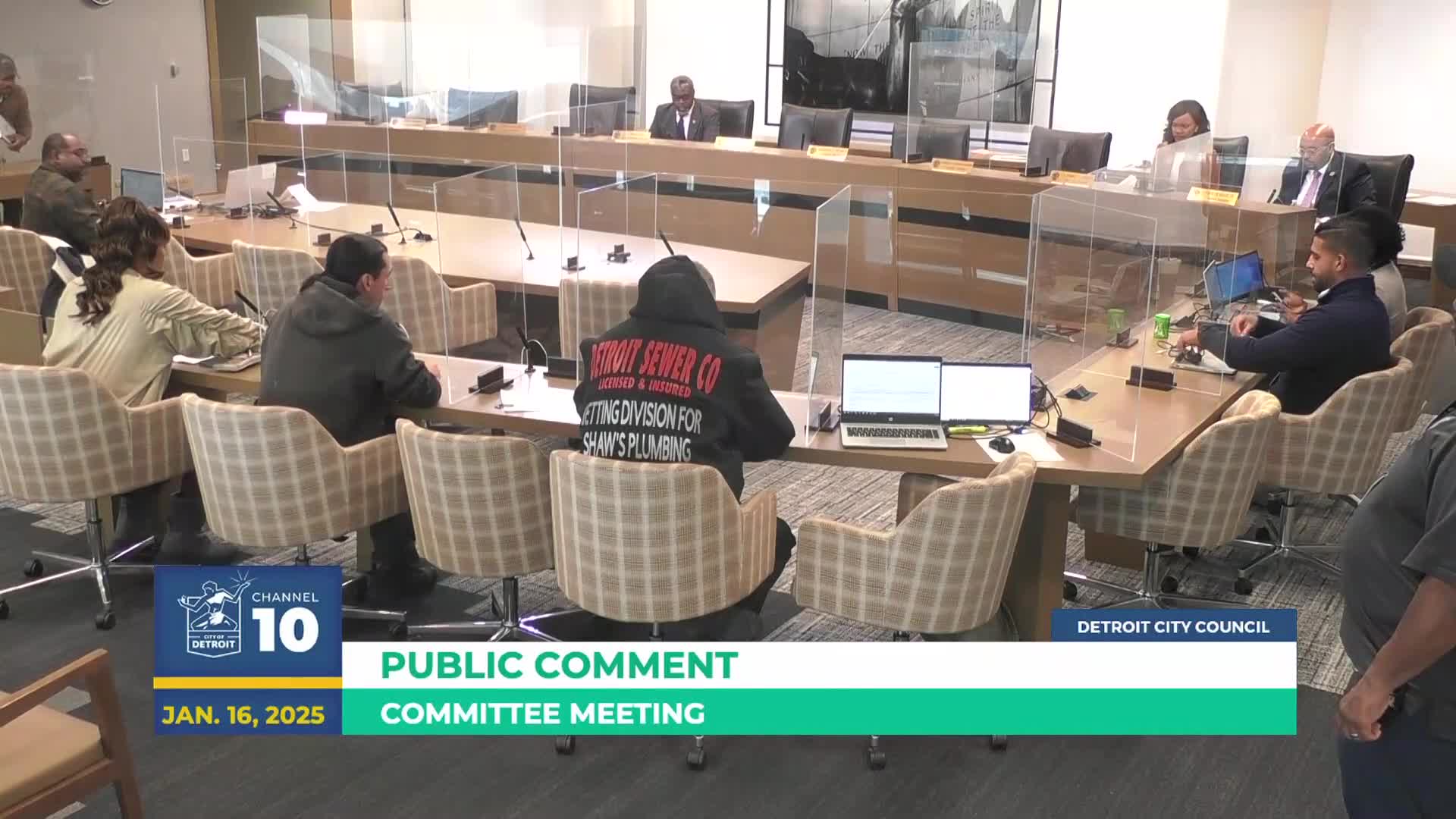Article not found
This article is no longer available. But don't worry—we've gathered other articles that discuss the same topic.
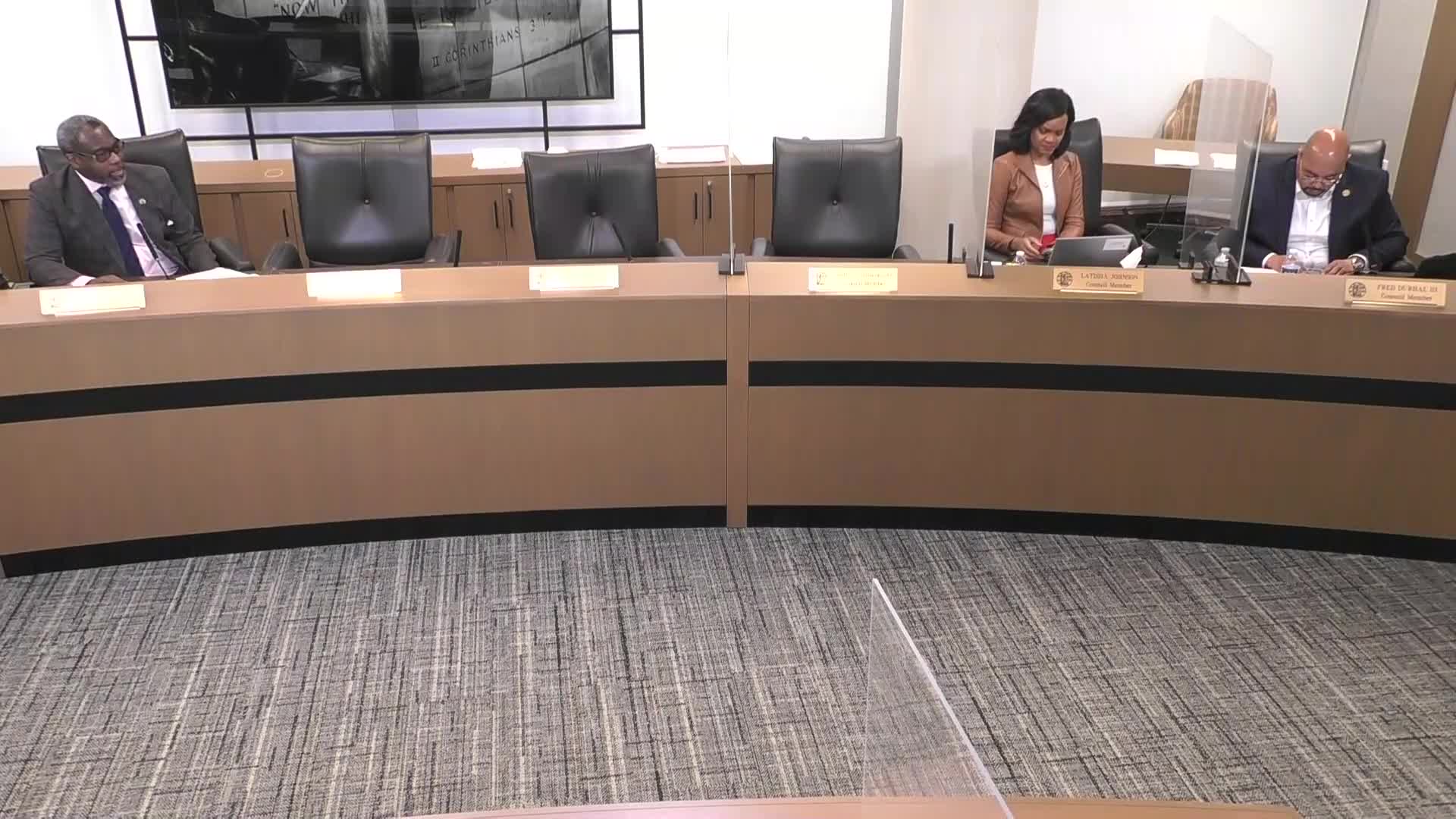
Council committee extends time-only contracts for neighborhood intake services in HRD home-repair programs
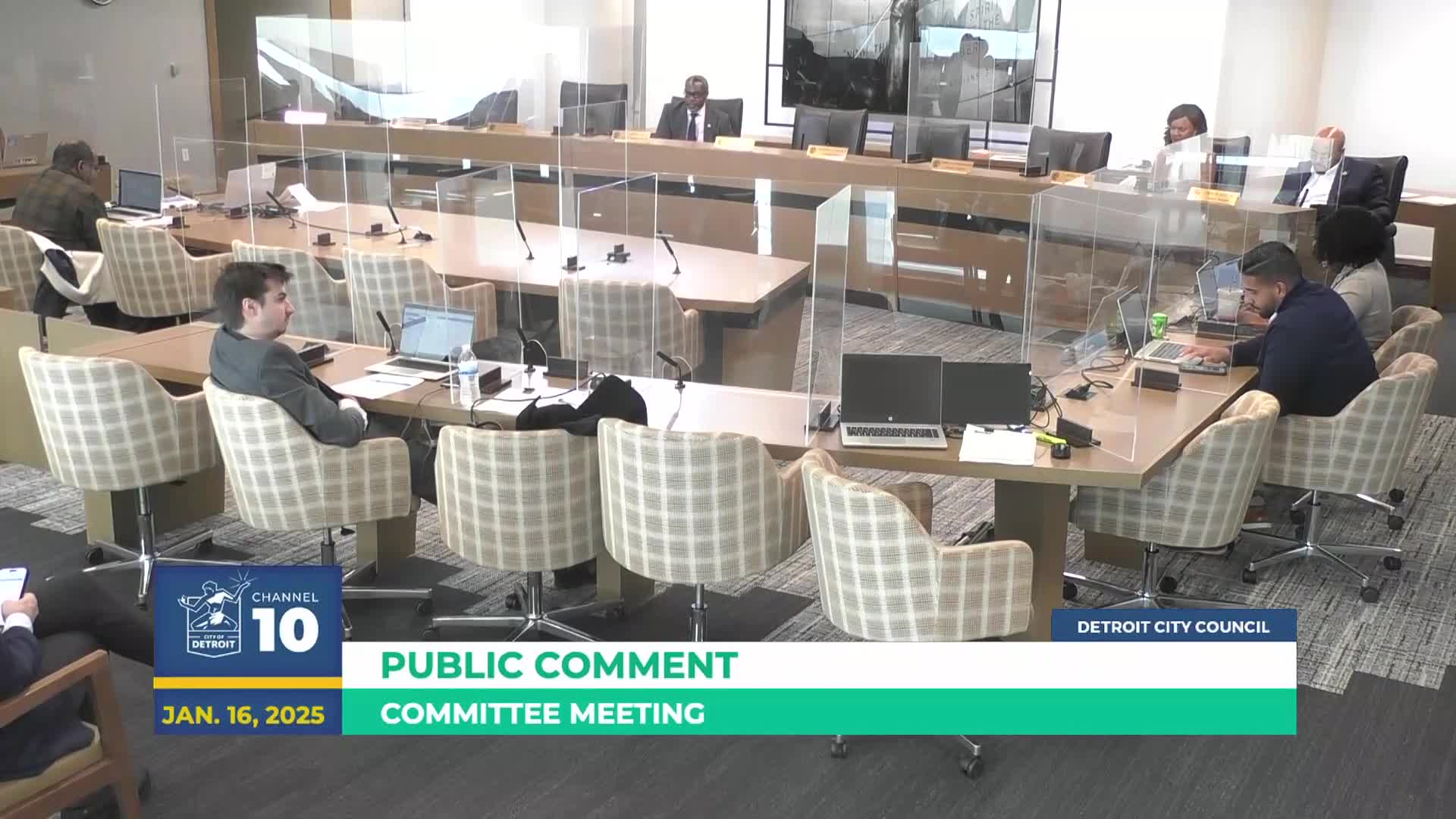
Downtown Detroit Business Improvement Zone reports $6.1M budget, highlights ambassadors and draft legacy
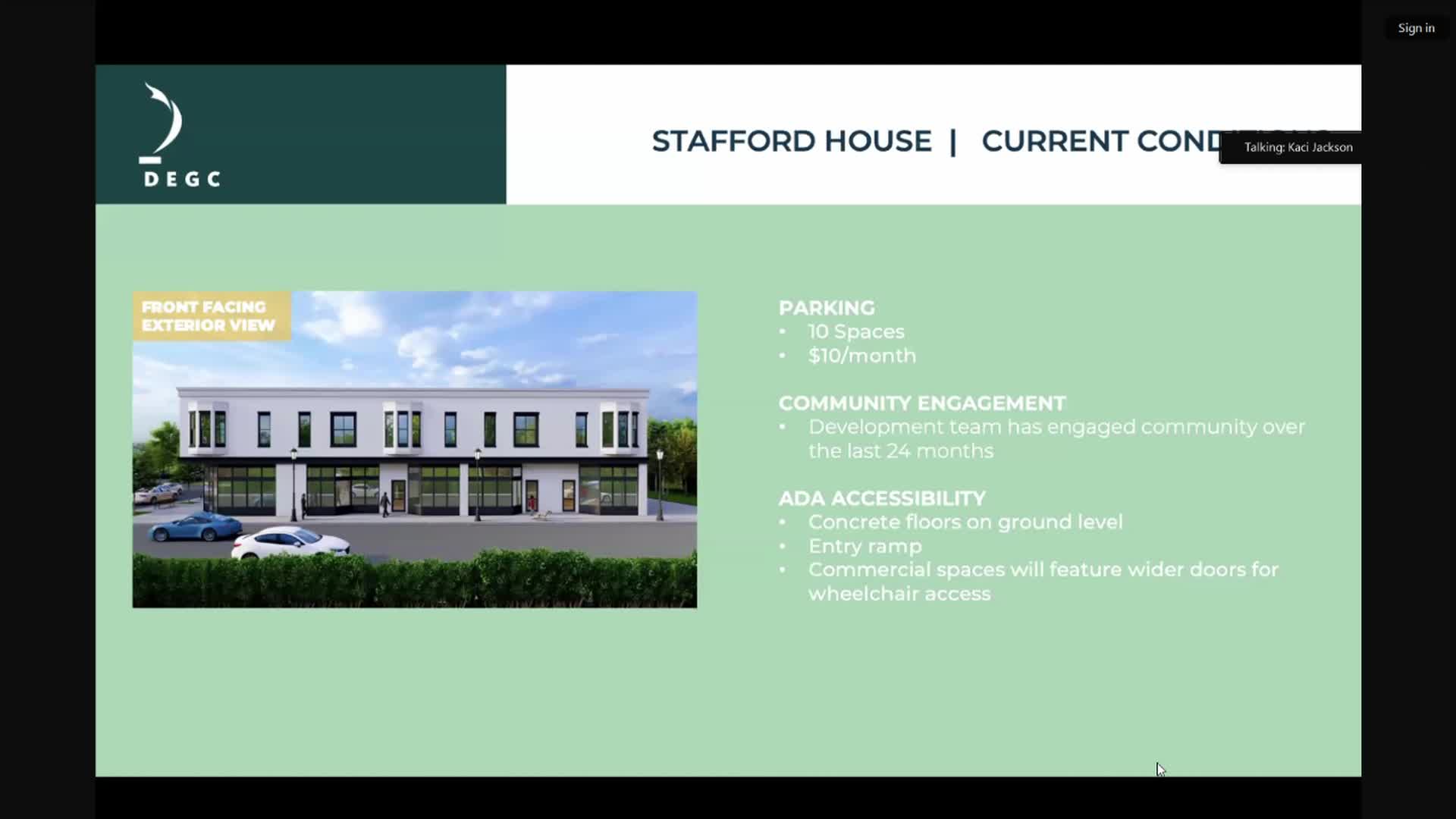
Developer seeks OPRA for energy-efficient rehab on Oakman; committee sends item to formal
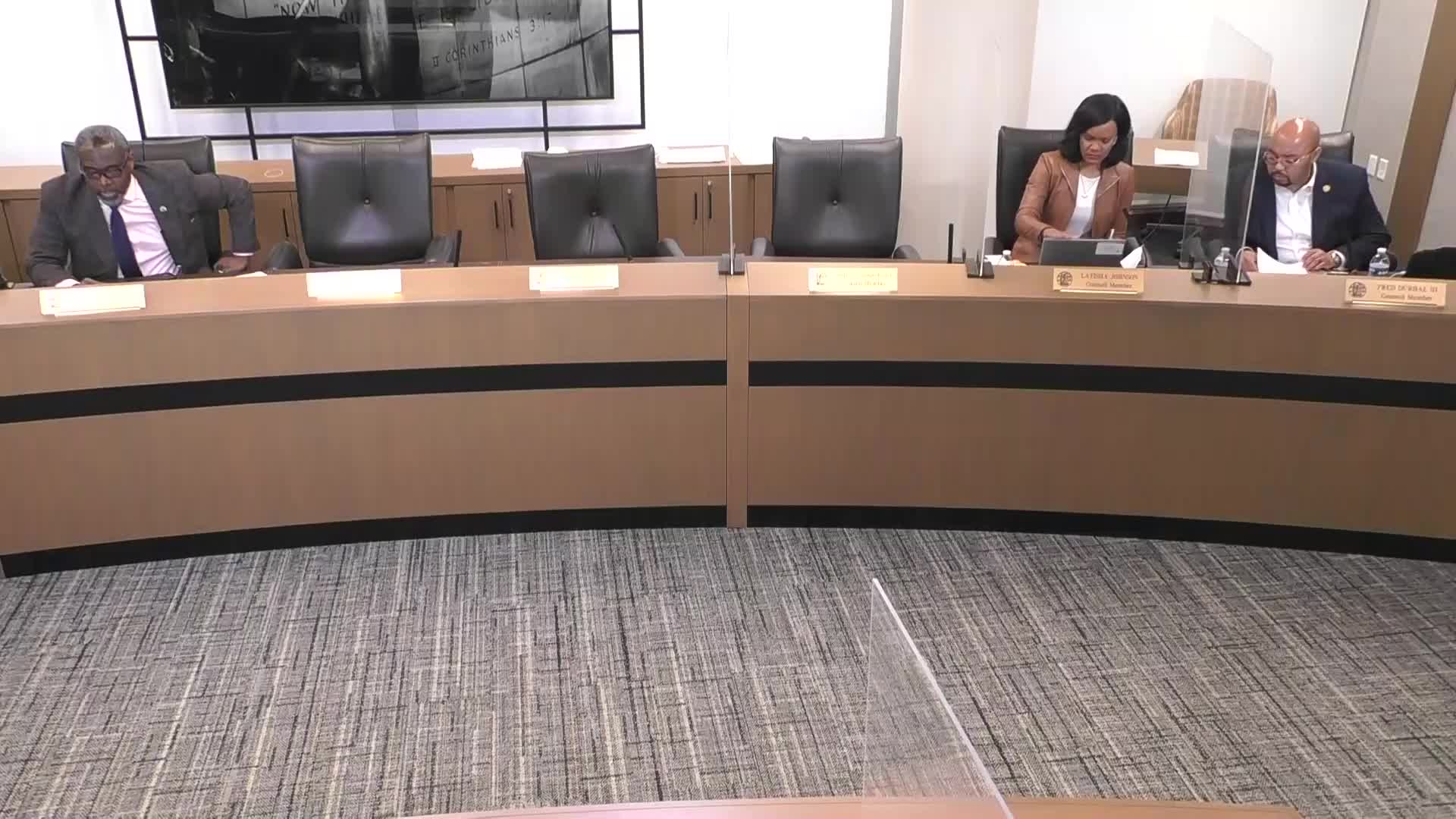
Stafford House wins committee support for NEZ review for North End rehab
